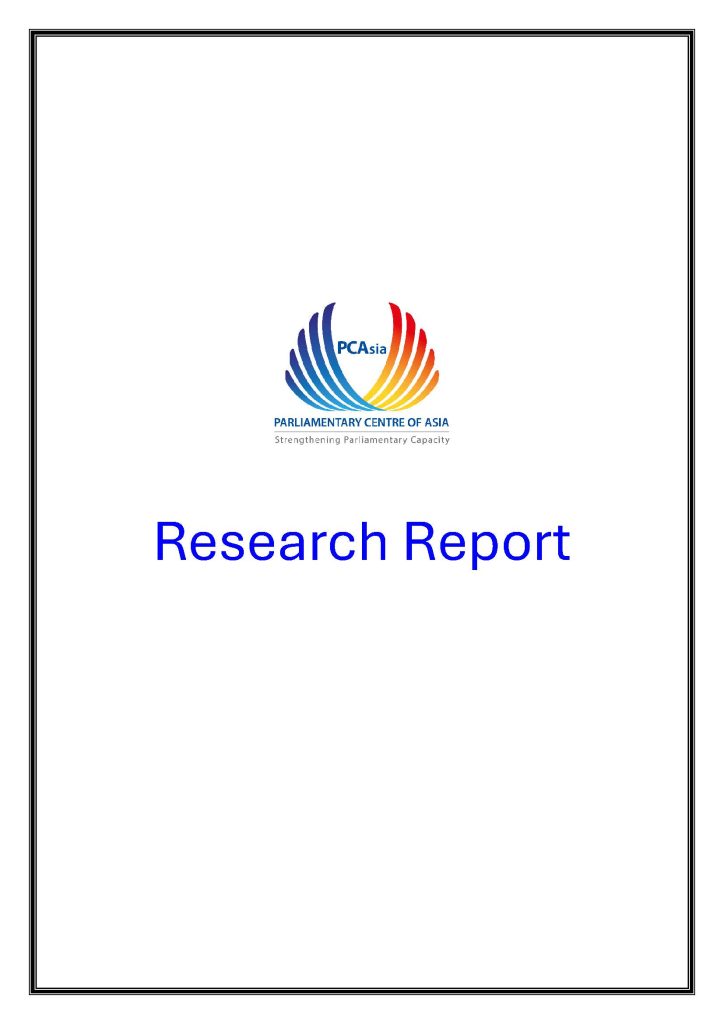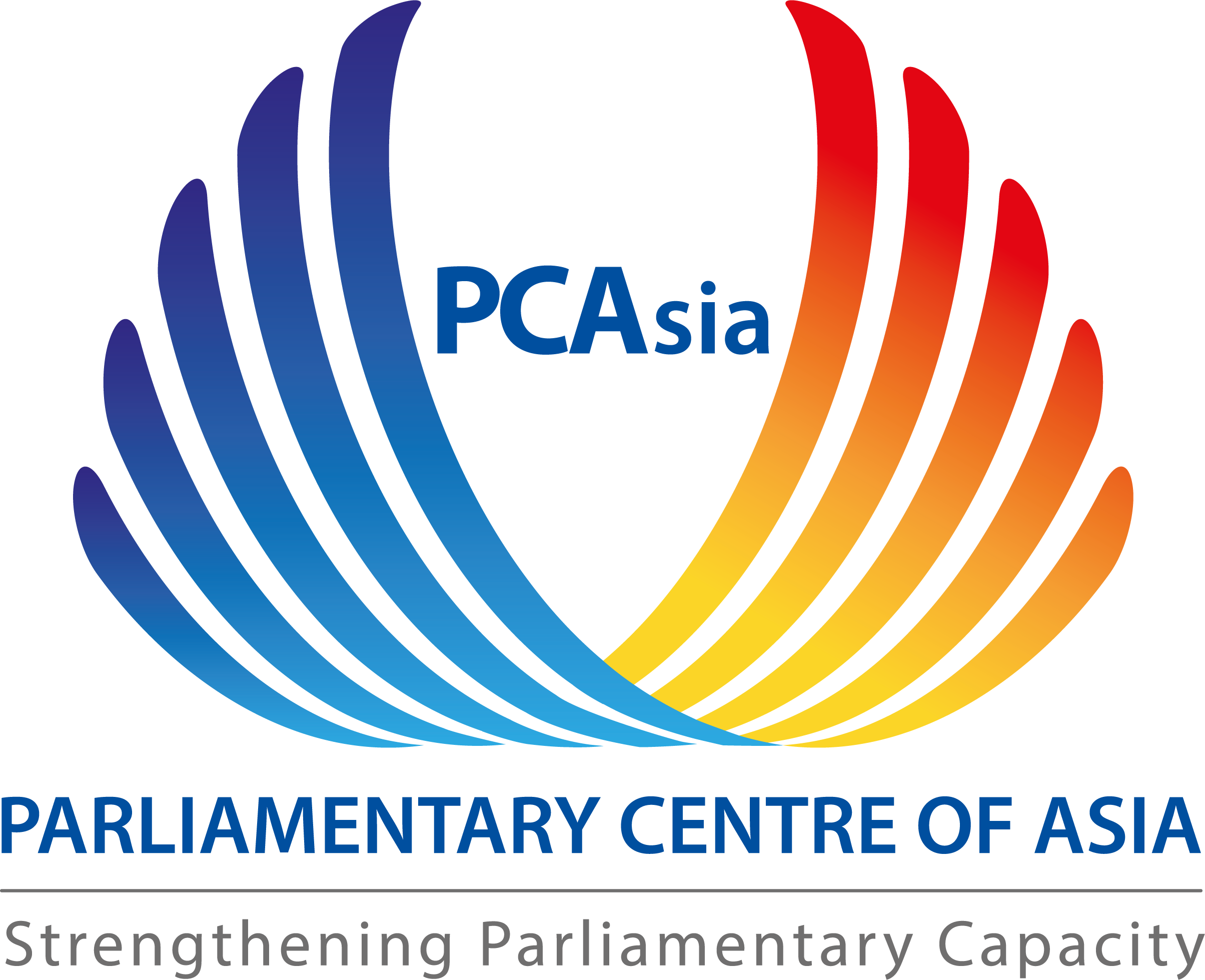Research Report

ផលប៉ះពាល់នៃជំងឺមិនឆ្លង (NCDs) លើសេដ្ឋកិច្ចសង្គម និងសុខុមាលភាព៖ វឌ្ឍនភាព និងបញ្ហាប្រឈមនៃការអនុវត្តគោលនយោបាយ NCD នៅអាស៊ីអាគ្នេយ៍
ជម្ងឺមិនឆ្លង (NCDs) រួមទាំងជម្ងឺសរសៃឈាមបេះដូង ជម្ងឺទឹកនោមផ្អែម មហារីក និងជម្ងឺផ្លូវដង្ហើមរ៉ាំរ៉ៃ គឺជាមូលហេតុចម្បងនៃការស្លាប់នៅអាស៊ីអាគ្នេយ៍ ដែលមានចំនួនប្រហែល 74% នៃការស្លាប់ទាំងអស់នៅក្នុងតំបន់នៅឆ្នាំ 2021។ កត្តាដូចជា ការរីកចំរើនយ៉ាងលឿននៃនគរូបនីយកម្ម ឧស្សាហូបនីយកម្ម និងការផ្លាស់ប្តូររបៀបរស់នៅបានបង្កើនកត្តាហានិភ័យសម្រាប់ជម្ងឺទាំងនេះ ដែលបង្កើនសម្ពាធធ្ថន់ធ្ងរដល់ប្រព័ន្ធថែទាំសុខភាព និងរារាំងដល់កិច្ចការកាត់បន្ថយភាពក្រីក្រ។ ជម្ងឺមិនឆ្លង បង្កើតបន្ទុកសុខភាព និងសេដ្ឋកិច្ចយ៉ាងសំខាន់ចំពោះប្រជាជនទាំងអស់។

សង្ខេបគោលនយោបាយ៖ ការដោះស្រាយបន្ទុក និងផលប៉ះពាល់សេដ្ឋកិច្ចសង្គមនៃ NCDs ក្នុងចំណោមកុមារ និងយុវជននៅអាស៊ីអាគ្នេយ៍៖ វឌ្ឍនភាព បញ្ហាប្រឈម និងជម្រើសគោលនយោបាយសម្រាប់សភា AIPA
ជំងឺមិនឆ្លង គឺជាបុព្វហេតុឈានមុខនៃការស្លាប់ និងពិការភាពនៅទូទាំងពិភពលោក រីឯអាស៊ីអាគ្នេយ៍ក៍មមានការកើនឡើងគួរឲ្យព្រួយបារម្ភ ជាពិសេសក្នុងចំណោមកុមារ និងយុវជន។ ជំងឺមិនឆ្លង មានចំនួនច្រើនជាង 74% នៃការស្លាប់នៅក្នុងតំបន់ក្នុងឆ្នាំ 2021 ។ អត្រាមរណៈពីជម្ងឺមិនឆ្លង ប្រហែលពាក់កណ្តាលស្ថិតនៅក្រុមអាយុពី 30 ទៅ 69 ឆ្នាំនៅឆ្នាំ 2021។ នេះគឺជាប្រភពចំណូលដ៏សំខាន់សម្រាប់គ្រួសារ និងសេដ្ឋកិច្ចជាតិ ហើយអាចរារាំងតំបន់នេះមិនឱ្យក្លាយជាសេដ្ឋកិច្ចធំជាងគេទីបួនរបស់ពិភពលោកនៅឆ្នាំ 2030។

Policy Brief: Addressing the Burdens and Socioeconomic Impacts of NCDs Among Children and Youth in Southeast Asia: Progress, Challenges, and Policy Options for AIPA Parliaments
NCDs are the leading cause of death and disability globally, with Southeast Asia seeing an alarming increase, particularly among children and youth. NCDs account for more than 74% of deaths in the region in 2021. This rise presents a significant public health challenge, with about half of these deaths occurring in the 30-69 age group in 2021. This is the main source of income for families and the national economy, and could prevent the region from becoming the world’s fourth largest economy by 2030.

Policy Brief: Addressing Non-Communicable Diseases (NCDs) Among Children and Youth in Cambodia
Cambodia is facing an increase in deaths due to NCDs, resulting from unhealthy lifestyle changes, urbanization, and an aging population. During this time, the number of deaths from communicable diseases has decreased by approximately 46%, which is higher than the average decline of about 19% in Southeast Asia (Figure 1). This result confirms the progress of healthcare services in Cambodia and the region.

សង្ខេបគោលនយោបាយ៖ ការដោះស្រាយជំងឺមិនឆ្លង (NCDs) ក្នុខចំនោមកុមារ និងយុវជនក្នុងប្រទេសកម្ពុជា
កម្ពុជាកំពុងប្រឈមនឹងកំណើននៃអ្នកស្លាប់ដោយសារជំងឺមិនឆ្លង បណ្តាលមកពីការផ្លាស់ប្តូររបៀបរស់នៅមិនមានសុខភាពល្អ នគរូបនីយកម្ម និងចំនួនមនុស្សចាស់។ ក្នុងរយៈពេលនេះដែរ ចំនួនអ្នកស្លាប់ដោយជំងឺឆ្លងបានធ្លាក់ចុះប្រហែល 46% ដែលច្រើនជាងមធ្យមភាគនៃអ្នកស្លាប់នៅអាស៊ីអាគ្នេយ៍ ថយចុះមានចំនួនប្រហែល 19% (រូបទី1)។ លទ្ធផលនេះបានបញ្ជាក់ពីវឌ្ឍនភាពនៃសេវាសុខាភិបាលនៅកម្ពុជា និងក្នុងតំបន់ ។

Impact of Non-Communicable Diseases (NCDs) on Socioeconomic and Welfare: Progress and Challenges of NCD Policy Implementation in Southeast Asia
Non-communicable diseases (NCDs)—including cardiovascular diseases, diabetes, cancer, and chronic respiratory conditions—are the leading cause of death in Southeast Asia, accounting for approximately 74% of all deaths in the region in 2021. Factors such as rapid urbanization, industrialization, and lifestyle changes have increased risk factors for these diseases, overwhelming healthcare systems and hindering poverty reduction efforts. NCDs pose significant health and economic burdens across all age groups.

Enhancing Climate Resilience and Disaster Preparedness: The Case of Flooding in Thailand
Southeast Asia is one of the region most vulnerable to climate change, with its countries facing extreme weather events, rising sea levels, and ecosystem degradation. Thailand, characterized by its extensive coastlines, urbanized areas, and rural communities reliant on agriculture, is especially susceptible to climate risks, making it prone to floods, droughts, and tropical storms [1]. These challenges are particularly acute in flood-prone regions such as Northern Thailand, which suffered widespread devastation in September 2024. The socio-economic impacts of the flood have been substantial, affecting critical infrastructure, disrupting livelihoods, and increasing the vulnerability of marginalized communities, underscoring the urgency of evaluating legislative frameworks and policies that address climate resilience and disaster preparedness.

Education and Skills Development for the Future Workforce in Cambodia
Education and skills development are key drivers of economic growth, social development, and reducing inequality . They provide individuals with the knowledge and skills needed to access decent jobs and contribute to society. In developing countries, where challenges such as limited resources and high unemployment persist, education and skill-building are crucial for overcoming poverty and achieving long-term development goals. Hence, building human capital through investing in education is vital to ensure the country’s development .

Importance of Scientific Research in French-Speaking Parliaments
Enhancing scientific research engagement within French-speaking parliaments is pivotal for fostering informed policy-making and effective governance. By bridging the gap between scientific knowledge and legislative processes, parliamentarians can make decisions that are not only evidence-based but also aligned with contemporary societal challenges. This integration ensures that the concerns of constituents are addressed with precision and relevance, particularly in areas such as public health, environmental policy, and technological innovation. Moreover, increased collaboration between scientists and legislators can cultivate a culture of transparency and accountability, promoting public trust in governmental institutions. It also encourages interdisciplinary approaches to complex problems, leveraging diverse perspectives that enrich discussions and outcomes. Ultimately, investing in scientific engagement within parliaments not only enhances legislative efficacy but also strengthens democratic governance by ensuring that policy decisions are rooted in sound scientific principles and reflective of the broader public interest.

PCAsia's Capacity-Building of Parliamentary Staff to Use Scientific Research for Informed Decision-Making to Support AIPA Member Parliaments
PCAsia emphasizes the pivotal role of enhancing scientific research engagement within AIPA member parliaments to promote evidence-based policymaking and effective governance. By fostering the integration of scientific knowledge into legislative processes, parliamentarians can make decisions that are informed, responsive to societal needs, and aligned with contemporary challenges such as public health, environmental protection, and technological innovation. This approach ensures that policy decisions reflect the most accurate and relevant data, reinforcing the credibility and legitimacy of governance.

Mapping Report on Indigenous Communal Land Titling (ICLT) with Gender Lenses in Cambodia
Cambodia’s Land Law 2001 (article 23) legally defines indigenous peoples as peoples whose members manifest ethnic, social, cultural and economic unity and who practice a traditional lifestyle, and who cultivate the lands in their possession according to customary rules of collective use. It contains important provisions on the protection of indigenous lands, which allow for communal land titles rather than individual titles, preventing the sale and transfer of indigenous lands outside of the communities.

Gender Learning Brief: Mangroves Asia – Cambodia
Community Fisheries (CFis) in Cambodia have been instituted as an integrated community-based intervention to safeguard aquatic ecosystems. Integral to the CFi concept are local community involvement in mangrove restoration, mangrove conservation awareness, and economic incentives for sustainable management. As of 2018, 516 CFi have been created, comprised of 475 inland-based and 41 in the coastal areas, with a total membership of 332,168 individuals.

Gender Dimensions of the Draft Land Law of Cambodia
The draft Land Law of Cambodia was released to CSOs in January 2024 (draft Land Law, dated 27 December 2023). Following a limited period given to civil society to review and provide comments, the MLMUPC accepted and integrated some comments into the draft and circulated to the CSOs a newer draft Land Law (developed for an inter-ministerial workshop on 26 March 2024). This draft Land Law of 26 March 2024 consists of 7 titles, 190 articles, and a glossary of terms. The following analysis refers to that version of the draft law.

Legal Analysis of Mangrove Forests in Cambodia
This report reviews Cambodia’s legal frameworks related to mangrove forest governance that drive mangrove tenure conflicts and mangrove loss in the country. This study highlighted that while the legal frameworks in Cambodia are sufficient to promote sustainable mangrove conservation, there are still gaps in the laws that contribute to uncertainty over mangrove tenure and overlapping jurisdiction among ministries, leading to contradictions that can hinder the smooth and efficient management of mangrove forests. These conflicting mandates can cause confusion and impede the effective management and governance of these vital ecosystems.

Overview of Mangrove Governance and Lessons Learned in Cambodia, Thailand and Indonesia
In Southeast Asia (SE Asia), Mangroves have been known for their ecological support to climate action, livelihood assets and coastal protection. With 33 percent of the global mangroves located in SE Asia and one fifth in Indonesia, with SE Asia experiencing the greatest loss of mangroves. This problem mainly points to systematic problems in mangrove governance that need to be addressed in the region.

REVIEWS OF COUNTRIES’ EMERGENCY RESPONSE POLICIES DURING COVID-19 PANDEMIC
Coronavirus disease 2019 (COVID-19) wasdetected in December 2019 in Wuhan,China. This represented the third outbreakof a human coronavirus, following SARS(severe acute respiratory syndrome) andMERS (Middle East Respiratory Syndrome). The virus spread quickly to 123 countriesworldwide, affecting more than 770 millionpeople, with approximately 7 milliondeaths, of which almost 400,000 were inSoutheast Asia.

The Parliamentary Center of Asia (PCAsia) is an independent parliamentary support institution for the client Parliaments which, upon request of the parliamentarians and the parliamentary commissions and their General Secretariats offers a wide range of trainings and research publications on current and emerging key issues, legislation and major public policy topics.
Summary Report on Analysis on Health Expenditure of NCD_Khm

This report highlights the public health expenditure and the socioeconomic impacts of noncommunicable diseases (NCDs) in Cambodia. NCDs are responsible for 6.6 percent of the economic burden, of which KHR 5.97 trillion were lost annually by indirect costs of KHR 5.63 trillion (absenteeism, reduced capacity at work and premature death) and 23 percent of dying prematurely (UNDP, 2020).
Summary Report on Analysis on Health Expenditure of NCD_Eng

The Parliamentary Center of Asia (PCAsia) is an independent parliamentary support institution for the client Parliaments which, upon request of the parliamentarians and the parliamentary commissions and their General Secretariats offers a wide range of trainings and research publications on current and emerging key issues, legislation and major public policy topics.
Main Report on Analysis on Health Expenditure of NCD_Eng

This report highlights the public health expenditure and the socioeconomic impacts of noncommunicable diseases (NCDs) in Cambodia. NCDs are responsible for 6.6 percent of the economic burden, of which KHR 5.97 trillion were lost annually by indirect costs of KHR 5.63 trillion (absenteeism, reduced capacity at work and premature death) and 23 percent of dying prematurely (UNDP, 2020).

The Parliamentary Center of Asia (PCAsia) is an independent parliamentary support institution for the client Parliaments which, upon request of the parliamentarians and the parliamentary commissions and their General Secretariats offers a wide range of trainings and research publications on current and emerging key issues, legislation and major public policy topics.
